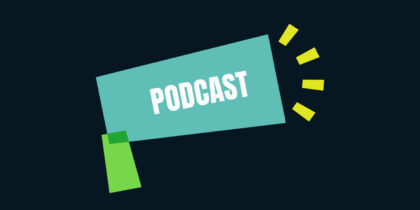Last September, Centre for Mental Health, alongside over 30 organisations, launched A mentally healthier nation: a 10-year cross-government plan for mental health. We now have over 60 endorsements for the document and a clear vision for parties to adopt into their manifesto work as we head towards a general election.
A mentally healthier nation focuses on three key areas – prevention, equality and support – as points of direction to be prioritised in new legislation and investment.
The need to improve mental health is an ever more common talking point. But tackling inequality is too often left out of this conversation. Mental health inequalities mean that while it is true that anyone can experience mental ill health, the risks are much higher for certain groups who experience structural discrimination and disadvantage, with significant intersections of disadvantage compounding mental health risks.
On top of this, people with mental health difficulties are often also treated less well in society, including in the social security and justice systems. The lives of people diagnosed with severe mental illness are, on average, 15 to 20 years shorter than those without a diagnosis. And the gap is getting bigger.
In A mentally healthier nation we set out the ways that inequalities affect people’s mental health, alongside key policy ideas for the Government to tackle these as a priority for improving mental health outcomes for all.
The evidence we explore shows that risks to mental health do not fall evenly across the population: people living in poverty; people with physical disabilities and illnesses; people with neurodevelopmental conditions; children in care; LGBTQ+ people; and people from racialised communities all experience much poorer mental health outcomes.
Racism can have a profound and lasting impact on mental health. The effect of daily experiences of racism has been linked to a range of mental health difficulties, including anxiety and depression. In our briefing A constant battle, Centre researchers have looked further into the negative effects of racism on mental health and examined how far-reaching and pervasive they are, with severe intergenerational consequences.
The effects of discrimination are not only felt by individuals subjected to acts of aggression. For a community, exposure to others’ experiences and fear of abuse can have collective ramifications for mental health. Seeing people who are Black or Muslim, for example, repeatedly being treated unjustly, either in person or on television or social media, can have a profound cumulative impact.
Inequalities do not exist in isolation; more often than not they will compound one another, deepening the effects and associated risks. While women and girls are at significantly higher risk for multiple mental health problems, notably anxiety, major depression, and eating disorders, the Agenda Alliance reports that women from racialised communities are at particular risk. They found that 29% of Black and mixed race women, and 24% of Asian women has a mental health problem, compared to 21% of White British and 16% of White other women.
Refugees and asylum seekers face significant challenges related to their mental health and are often at greater risk of developing mental health problems. Refugee women face risks to their mental health on both fronts, at the intersection of these disadvantages: facing the challenges of being a woman while escaping dangerous circumstances and being subject to the asylum system.
People who identify as LGBTQ+ are twice as likely to report depression than heterosexuals , with experiencing homophobia, biphobia or transphobia representing a distinct risk factor for depression and suicidality. The intersection of experiencing both racism and homophobia, biphobia and/or transphobia simultaneously compounds (and potentially worsens) the effects of these discriminatory behaviours on mental health.
While the UK Government has pledged to ban conversion practices for people with minority sexual identities, reports of loopholes in the proposed legislation have been widely criticised by LGBTQ+ advocates and mental health practitioners. Conversion practices are abusive and put people at risk of a range of mental health problems, including posttraumatic stress disorder, eating disorders and suicide. A complete ban on all such practices is necessary to protect the mental health of all LGBTQ+ people.
Structural inequalities impact the way people experience aspects of daily life, making certain groups more vulnerable to experiencing inadequate workplace protections and limited employment opportunities, poor housing and financial difficulties, and negative interactions with the criminal justice system. All forms of discrimination, including against people living with severe mental illness, limit our possibilities of living full and healthy lives.
Even before the Covid-19 pandemic, health inequalities were estimated to cost the NHS an extra £4.8 billion a year. Concerted government action is needed to tackle these inequalities and close the unacceptable health gaps between different groups. A mentally healthier nation provides a thorough blueprint for achieving this.
Join us in demanding a fairer and healthier future for us all
The prime minister has confirmed that 2024 will see a general election – so we’re calling on all political parties to adopt the ideas we set out in A mentally healthier nation in their manifestos and enact them if elected. You can help us to make this happen by contacting your local candidates.
If we all put mental health on our candidates’ agendas we can build the momentum needed for these ideas to be put into action. Nearer the election we will provide the means of identifying your candidates and a template to call on them to support a mentally healthier nation.








